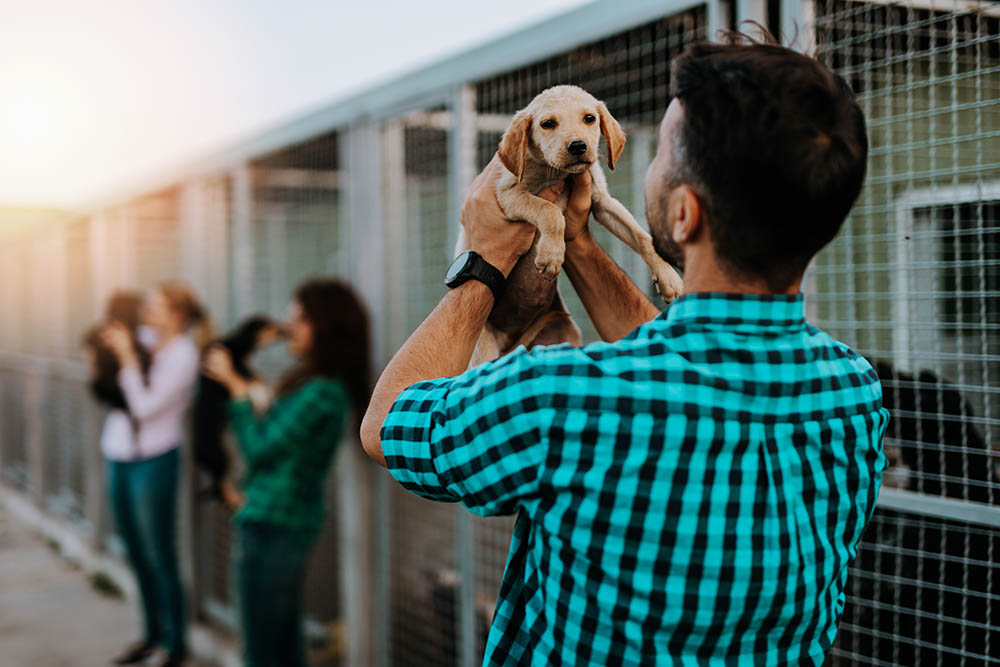About 86.9 million American households have at least one pet. Dogs are the most popular animal companions, and it’s easy to see why. Our pets give us unconditional love, which is why many consider them family members. Many people choose to adopt pets since they clearly need a home, and thousands of organizations exist to help them find one. But what about if you want to adopt a pet from another country?
As an example, some people are moved by the impact of natural disasters happening overseas and opt for international dog adoption. Restrictions exist at the federal and state levels, and the primary concern is public safety. In 2007, the United States was declared canine-rabies free. However, other variants exist in different species. The distinction is significant when adopting a dog from abroad. So, while it is possible to adopt a dog internationally, you need to ensure it’s possible to bring them back to your home country.

Federal Regulations
The USDA Animal and Plant Health Inspection Service (APHIS) and the CDC regulate the importation of overseas animals. The laws vary, depending on whether you are a seller or a pet owner. The overriding restriction is the ban on imported canines from high-risk rabies countries, including Pakistan, Cuba, and Russia. The regulations change based on circumstances overseas.
The dog must go through one of the 18 airports with a CDC port health station. The other stipulations involve whether the animal was vaccinated for rabies in the United States or abroad. The latter requires an application for entry. A pup that has been in a high-risk rabies country within the last 6 months is also banned.

APHIS Requirements
The Animal Welfare Act (AWA) specifies what individuals must do to import dogs for adoption as per the APHIS. Whether you can will depend on your compliance with these requirements. You cannot adopt a pup and bring the animal into the United States unless they are 6 months old. The seller must have the dog examined by a licensed veterinarian who attests to the pup’s good health and be vaccinated.
The health certificate must be in English. Additional regulations exist for other required vaccinations, including leptospirosis (DHLPP), parainfluenza, parvovirus, hepatitis, and distemper. The dog must also be free of foot-and-mouth disease and screwworm. Remember that these agencies protect people against health conditions that aren’t a problem in the United States.
Additional Requirements
But wait! There’s more! State regulations may also exist. We strongly urge anyone considering international dog adoption to contact their state animal health official for more information. It’s worth noting that airlines may have additional requirements for travel. Meeting the federal regulations will likely cover some things for you. However, it’s best to call ahead for clarification.
Finally, you should check with your municipality to see if you are adopting a breed subject to bans, such as Cane Corso or American Staffordshire Terrier. That precaution also applies to your rental or homeowner’s policy. The American Veterinary Medical Association (AVMA) and other organizations have been vocal in their opposition to these bans. Nonetheless, they still exist.

Pros of International Dog Adoption
The standout pro is giving a dog in need a forever home. It’s a rewarding experience to rescue a dog from a bad situation. It’s a worthwhile and humane cause. Many organizations exist to help you through the quagmire of paperwork and streamline the process. They can ensure you have everything in order to prevent the pup from being denied entry into the country and sent back at your expense.

Cons of International Dog Adoption
Pet adoption scams exist that take advantage of people’s desire to help homeless animals. They may pose as rescue groups trying to find homes for needy pets. We advise researching the organization before signing any documents or sending money. The other concern lies with the animals themselves. After all, the regulations are there for a good reason.
Unhealthy dogs or those with undetected hereditary and congenital conditions also pose a risk to pet owners. Remember that these issues can adversely affect other pets in your home or neighborhood. Owning a pup is a financial commitment. A fraudulent adoption could set you up for hundreds or even thousands of dollars in unexpected expenses.
Finally, we must address the elephant in the room. About 3.1 million dogs go into shelters annually, with roughly 390,000 euthanized. There are plenty of available dogs in the United States without having to go through the expense and hassle of international dog adoptions. Remember that getting an animal to this country is extremely stressful and avoidable if you go through a local organization. However, the choice is ultimately up to you, and if you’re dead set on adopting a dog from another country, then it is possible!

Final Thoughts
We understand why someone would consider international dog adoption. It tears at our heartstrings to see homeless animals in need of a home. Learning the federal, state, and local regulations is imperative to bring a pet into the country. Nonetheless, the fact remains that you can find a pup stateside that can offer just as much joy and love to your household. Regardless, if there is a pet you love in another country, then it is possible to give them a loving forever home.
Featured Image Credit: McLittle Stock, Shutterstock




















